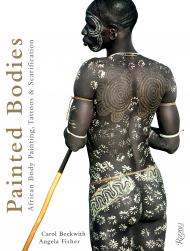Художники графічного дизайну, фотографії, ілюстрації, живопису та скульптури знайшли в татуюваннях новий інструмент, щоб виразити себе та дати вихід своїй характерній мові. І вони роблять це зі свіжим виглядом і надзвичайними результатами, часто далекими від традиційного татуювання. New Tattoo Artists представляє роботи 25 майстрів татуювань з усього світу, ведучи нас у захоплюючу подорож цим «новим мистецтвом татуювання». Їхня робота була підкріплена багатьма джерелами, результатом чого стала багата, різноманітна та особливо унікальна книга, яка пропонує відроджене бачення стародавнього мистецтва разом із власними роздумами та особистим досвідом художників.
Про автора:
Маріона Кабасса — дизайнер та ілюстратор. Народившись у Барселоні в 1977 році, вона опублікувала свої малюнки та ілюстрації у понад 80 дитячих книгах для різних видавництв, зокрема Barefoot Books, Book House і Quarry Books. Невтомний дослідник у пошуках нової виразної місцевості, вона займається мистецтвом татуювання майже чотири роки. Вона викладала прикладну ілюстрацію до татуювань у школі дизайну Elisava в Барселоні та викладає в різних школах мистецтва та дизайну в Барселоні.














